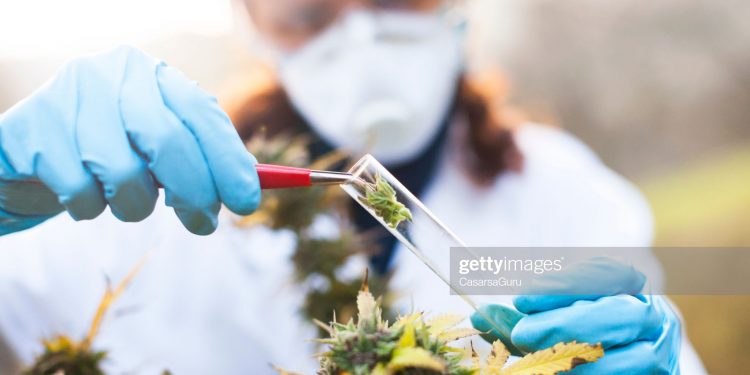PHILIPSBURG – 05 August 2019 Medicinal cannabis (medical marijuana) is cannabis prescribed by an authorized doctor to relieve the symptoms of a medical condition, such as epilepsy. It is important to make the distinction between medicinal cannabis and recreational cannabis.
Recreational cannabis is the form of cannabis that people use to get ‘high’. Medicinal cannabis is cannabis that is specifically produced and destined to treat certain health conditions. For some people suffering from chronic or terminal illnesses, conventional medicines do not work, or do not work as effectively as medicinal cannabis might work. Also, for some patients, conventional medicines may work but cause debilitating side effects that cannabis can help to relieve.
Given the current status of evidence-based data from (clinical) research and experiences in several countries, the Inspectorate VSA is of the opinion that this treatment modality that may benefit certain patients suffering from specific medical conditions, should be available in Sint Maarten as well. On August 2nd, the Inspectorate VSA has published a policy that will make this possible.
The policy focuses on procedures for import, storage, distribution and prescription of medicinal cannabis within the existing legal framework, with the goal to make this modality of treatment available to patients in Sint Maarten whilst incorporating quality and safety guarantees.
Use of medicinal cannabis in specific medical conditions
There is activity evidence from systematic reviews of cannabis-based (THC) products and cannabinoids (CBD) for the treatment of chemotherapy-induced nausea and vomiting, epilepsy, multiple sclerosis (MS), chronic non-cancer pain, therapy resistant glaucoma, tics in Gilles de la Tourette syndrome and use in palliative care in terminal patients. For now, prescription of medicinal cannabis products will be limited to these symptoms and diseases. As there are very few studies on medicinal cannabis treatment in palliative care, it should be used only after standard treatments have failed.
It is possible that medicinal cannabis will interact with chemotherapy and other medications used in palliative care. Medicinal cannabis can only be prescribed by a registered medical practitioner with appropriate qualifications and/or expertise for the medical condition requiring treatment. Medical practitioners can submit an application to the Inspectorate VSA to become an Authorized Prescriber (AP) of medicinal cannabis.
Approval or authorization may be granted by the Inspectorate VSA after an evaluation of the application. Interested patients should consult with their GP to find out which doctors have been authorized. Before prescribing medicinal cannabis, the doctor will assess each patient to decide if the treatment is appropriate for their condition and individual circumstances. The doctor will take a medical history and a family health history. The doctor will also consider the patient’s current medications and any problems with drug dependence and substance abuse. Also, other treating physicians must be consulted prior to prescribing medicinal cannabis.
As with all doctor consultations, investigations and prescribed treatments, properly informing the patient (informed consent) and documenting history, course of the health status and all actions taken are mandatory in accordance with the agreement concerning medical treatment (“Overeenkomst inzake geneeskundige behandeling” – Book 7, chapter 5 of the Civil Code). The prescribing physician must document the informed consent in the case of medicinal cannabis through a signed consent form.
Route of administration
There are various ways in which medicinal cannabis can be administered. The most common route is through inhalation by means of a vaporizer, however most patients who cannot inhale choose to use it orally. The Inspectorate VSA does not approve of smoking as a way to administer medicinal cannabis due to the release of harmful by-products of smoking such as carbon monoxide (CO) and other combustion generated toxins which pose a health risk. Inhalation however via a vaporizing medical device, compared to smoking, significantly reduces concentrations of the toxins.
To avoid the harmful effects of smoking, it is advisable to inhale medicinal cannabis with a vaporizer that will allow the active ingredients to evaporate from the medicinal cannabis. The Inspectorate VSA approves the administration of medicinal cannabis for therapeutic purposes via: · Vaporizer · Extract · Tea
Availability
Medicinal cannabis will only be available through authorized pharmacies upon prescription. Your prescribing physician will direct you to the appropriate pharmacy.
General cautions
- Patients should not drive or operate machinery while being treated with medicinal cannabis. In addition, measurable concentrations of THC (tetrahydrocannabinol – the main psychoactive substance in cannabis) can be detected in urine many days after the last dose. It may take up to five days for 80 to 90 per cent of the dose to be excreted. Driving under the influence of any substance is a criminal offence, and patients should discuss the implications for safe and legal driving with their doctor.
- Medicinal cannabis is not appropriate for:
- people with an active or previous psychotic or active mood or anxiety disorder
- women who are pregnant, planning to become pregnant or breastfeeding
- people with unstable cardiovascular disease.
- Patients with neurological conditions may be more likely to experience negative effects from medicinal cannabis.
- There is no information available on the most effective or safe dose for various conditions and symptoms. For this reason, starting doses should be low and increased over time until patients respond positively or the negative effects outweigh the perceived benefits. Low start doses are particularly important for people with memory and thinking difficulties, liver and kidney disease, and weakness and wasting of the body due to severe chronic illness. Low start doses are also important for young people and the elderly.
- Prescribing doctors should:
- carefully assess elderly and particularly sensitive patients
- consult with other treating physicians/specialists
- regularly monitor interactions between medicinal cannabis and other treatments
- assess liver function when deciding to continue or stop treatment.
- Although there may be some evidence to suggest a benefit from medicinal cannabis treatment for one condition or symptom, this does not mean it will have benefits for other conditions, even with the same product and the same dose.
There is very limited evidence to show how medicinal cannabis reacts with other approved medications. There is a significant need for larger, high-quality studies to better explore the potential benefits, limitations and safety issues associated with medicinal cannabis treatment across a range of health conditions and symptoms. Prescribing doctors should also collect data based on first-hand patient experience. This will further increase our knowledge and understanding of how to use medicinal cannabis effectively and safely.
Cannabidiol (CBD) containing medicines and products
There have been claims that a number of cannabinoids have therapeutic properties, but these have not yet been proven scientifically. Sales of the cannabis extract cannabidiol have roughly doubled over the past two years in some countries. But there are concerns that CBD products are not all they claim to be. Alongside reputable sellers, the rapid growth of the industry has attracted “CBD cowboys” – opportunists trying to make a quick profit. The hype is being helped along by celebrities.
There are many CBD products available on the market and the quality of the product is not always guaranteed. Some CBD products contain very little of the advertised CBD ingredient making it ineffective, many still contain significant measurable levels of THC making them technically illegal, some also contain other products like dichloromethane, which can cause wheezing and shortness of breath or other symptoms, at levels above food safety limits. Contamination with bacteria is a great risk when manufacturers don’t apply “good manufacturing procedures”.
Unless they have them licensed as a medicine, sellers aren’t allowed to make explicit health claims. Consumers are best advised to tread carefully, do their research and wait for more evidence. Shoppers should look for brands that can provide a certificate of analysis of their products. Because CBD can be found and extracted from different parts of the cannabis plant, it is important to know from which part of the cannabis plant the CBD in the product was extracted from.
An evaluation of the primary and secondary packaging label information of the CBD containing products will be done to determine whether the product is subject to the Opium Ordinance and/or the Ordinance regulating the supply of medicines. The evaluation of CBD containing products will be done by the Inspectorate of Public Health, Social Development and Labor. If a product containing CBD can also be considered a medicine in accordance with the definition of medicine in the ordinance regulating the supply of medicine, then the product will also be subject to the regulations for medicines including the registration requirements Given the above, the import, storage and delivery of CBD products will only be allowed through pharmacies. Some CBD products will require a prescription and some not. This will be determined by the Inspectorate VSA.
Hemp seed oils are not subject to the Opium Ordinance and are not restricted. However, if it becomes evident that the hemp seed oils sold on the island contain hidden or undeclared ingredients that are restricted by the Opium Ordinance or if they are contaminated with undesirable substances, such as microbes, heavy metals, pesticides, residual solvents, mycotoxins and or pathogens, the Inspectorate VSA will limit the import and sale of hemp seed oils also to pharmacies. As this new evidence emerges over time from doctors, clinical trials and other research, the Inspectorate VSA will update its policy.
Dr. E. Best, Inspector General VSA – August 4, 2019


















